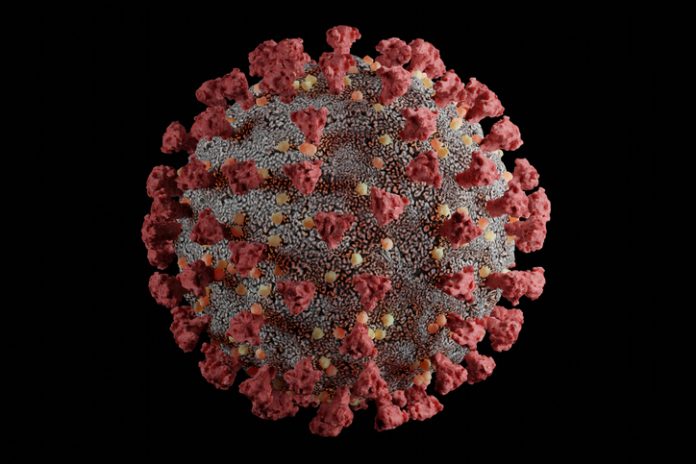Republicans on the U.S. House Committee on Energy and Commerce are seeking answers about oversight and funding of Boston University (BU) research that created a highly transmissible COVID-19 strain with the original virus’s potential for serious illness.
The Republican Leader of the committee, Rep. Cathy McMorris Rodgers (WA), and subcommittee leaders Reps. H. Morgan Griffith (VA) and Brett Guthrie (KY), said the research was not cleared by the National Institute of Allergy and Infectious Diseases (NIAID), in a letter to BU President Robert A. Brown on October 25.
“Dr. Emily Erbelding, director of NIAID’s division of microbiology and infectious diseases, said the BU team’s original grant application did not specify that the scientists wanted to do this precise work,” the legislators wrote. “Nor did the group make clear that it was conducting experiments that might involve enhancing a pathogen of pandemic potential in the progress reports it provided to NIAID.”
The letter acknowledges BU’s claim the research did not require NIAID clearance because the experiments were carried out with funds from BU and did not involve gain of function research; but the lawmakers said Erbelding is concerned.
“Asked if the research team should have informed NIAID of its intention to do the work, Dr. Erbelding said: ‘We wish that they would have, yes,’” states the congressional letter. “Recent news reports indicate that the NIH is examining whether experiments in the study should have triggered a federal review.”
The committee’s GOP leaders have the power to hold hearings and issue subpoenas in the 118th Congress.
Lab Used Transgenic Mice
BU’s National Emerging Infectious Diseases Laboratories (NEIDL) created the new hybrid, Omi-S, by grafting the Omicron strain’s spike protein onto the ancestral SARS-CoV-2 virus, which could have escaped the Wuhan Institute of Virology in China.
Researchers used different sets of transgenic mice specially bred to be susceptible to SARS-CoV-2. No mice infected with the Omicron variant died; all of the mice exposed to ancestral COVID-19 died, and 80 percent of the mice infected by Omi-S died.
BU’s research was published in the form of a preprint, which means it was not peer-reviewed.
Lawmakers Request Safety Protocols
The GOP lawmakers asked BU to provide them with numerous documents, including all proposals and progress reports referenced in the preprint or sent to NIAID, and a list of all funding streams related to the study, including support for facilities, equipment, and personnel.
Mohsan Saeed, Ph.D., DVM, who oversaw the BU research, was supposed to stop the study if it created a more harmful version of the original COVID virus and notify NEIDL Director Ronald Corley, said the lawmakers, citing a report in STAT News.
“Dr. Corley said that BU safety protocols require that if researchers produce a pathogen that is more virulent than the Wuhan strain, they must immediately report it to the Institutional Biosafety Committee (IBC),” states the Republicans’ letter. “Dr. Saeed’s study protocol further stipulated that if such an event occurred, he would immediately stop the work and destroy the viruses, Corley noted.”
They also asked Brown to provide a copy of the BU safety protocols, including the reporting requirement to the IBC and a copy of the study protocol for stopping research.
NIH Funds ‘Potentially Dangerous Research’
BU says it received no federal funding, but the study credited the National Institutes of Health (NIH) with support to “help develop the tools and platforms used in this research,” the university acknowledged.
The importance of the study is debatable, says Jane Orient, M.D., executive director of the Association of American Physicians and Surgeons.
“Potentially dangerous research on bioweapons—generally claimed to be ‘defensive’—is going on in thousands of laboratories worldwide, possibly including Ukraine,” said Orient. “Much of it is funded by the NIH, which is hardly a trustworthy watchdog. The significance of the BU research is controversial, and a high level of expertise in molecular biology would be required to evaluate the claims.”
Policymakers should not let the debate over the BU study distract them from actions that could be taken now, says Orient.
“The furor is a diversion from the two critical issues we can do something about: early treatment with safe repurposed drugs, and the dangers of the ‘vaccines,’” said Orient. “We can immediately stop suppression of treatment and stop the massive global campaign to ‘get a shot in every arm.’ We have no idea how many people have heart damage, impaired fertility, or greater susceptibility to cancer.
Orient cautions against taking a wrecking ball to the BU research.
“Let’s first look at the vaccine safety features, not at esoteric BU research,” said Orient. “Shutting the place down and destroying its cultures and data would accomplish nothing but might destroy needed data and expertise.”
‘Demand Transparency’
We no longer have confidence in medical experts due to the pandemic, says Marilyn Singleton, M.D., JD, a California-based physician.
“Amid researchers’ claims to ward off the next pandemic, new cures, and the like, sadly we have lost faith in scientific integrity in the age of COVID-19,” said Singleton.
“There will always be controversial research,” said Singleton. “CRISPR (Clustered Regularly Interspaced Palindromic Repeats) technology that allows the correction of mutant genes or of genetic diseases by slicing out sections of DNA and replacing that removed section with a new, updated sequence of DNA is hailed as a life-changing miracle by many but seen a ‘playing God’ by others. We don’t want to halt advances in science, but we must demand transparency regarding funding sources and a risk/benefit analysis of potentially dangerous research.”
Bonner Russell Cohen, Ph.D. (bcohen@nationalcenter.org) is a senior fellow at the National Center for Public Policy Research.




















